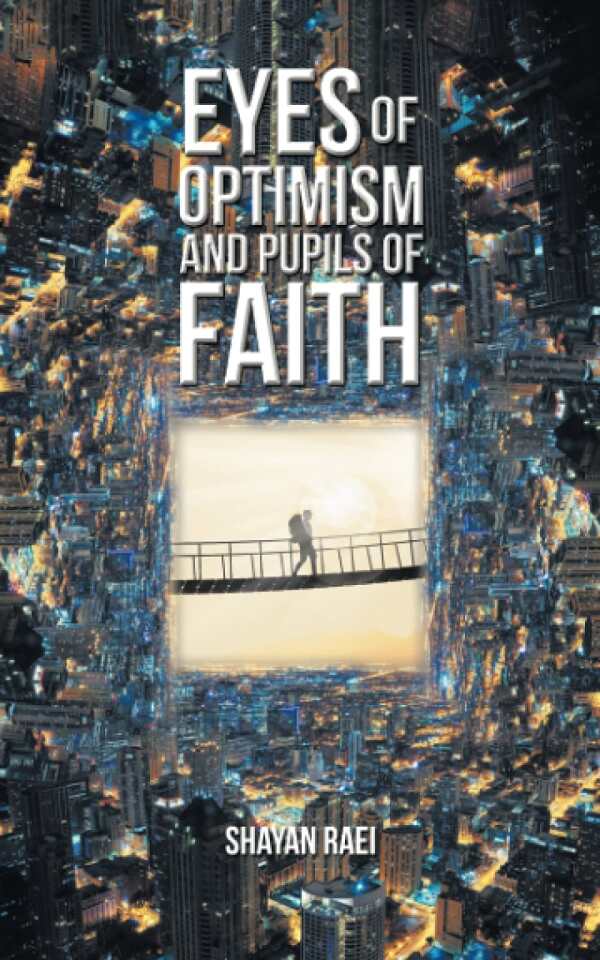Eyes of Optimism and Pupils of Faith
Reflecting on contemporary conflicts and perspectives, the poetic entries of Eyes of Optimism and Pupils of Faith exalt the pursuit of inner peace.
Shayan Raei’s spiritual poetry collection Eyes of Optimism and Pupils of Faith champions inner reflection to counter technology and other contemporary challenges.
Values like self-awareness and inner tranquility are at the core of these poems, which use natural references to suggest responses to modern tumult. Here, bodies of water represent the cacophony of influences in daily encounters; climbing a mountain represents rising above chaos.
The poems are divided according to theme, with topics including relationships, friendship, and life. The arrangement somewhat belies the fact that the same notion—that inner reflection is essential when it comes to resolving intrapersonal conflicts and doubts—is returned to throughout, regardless of the suggested impetus for an individual entry. Many of the poems also interrogate the impact of technology on relationships and personal experiences. “As a kid” questions the value of social media, calling Instagram too “instant”:
As you watch the waterfall from the
leaf, you follow the rain’s drop
Then laugh, because you believed
you knew its sole value
Keep watching
To see something priceless…
In technique, the stanzas are spaced in a deliberate manner; their breaks and punctuation result in strong rhythms that sooth audiences toward reflection. The book’s weighty messages are supported by such choices. The poems play with language in an effective way as well, selecting diction in a methodical manner. In “Allusive,” the final lines lean into homophone connections to muse on “Allusive lines defining life / Elusive to define / Illusive and lucid rhyme.”
The entries are subtle about their complexities, too, planting suggestions for later contemplation. One narrative entry, “The secret to living,” is about a young traveler who gives a tip to a cleaning lady at a hostel; they then encounter a friend on the departing train, where the ticket officer forgives an expired ticket, suggesting a return of the narrator’s kindness.
In contrast to such scenes, the entries that center on self-reflection itself become less concrete: “Mission” focuses on reconnection to one’s self, but addresses the topic through now-familiar water imagery; “Ignorance is not bliss” is more philosophical, and is concerned with reawakening the knowledge within oneself in order to learn. And despite the book’s apparent religiosity, God, when addressed, is spoken of in impersonal, elusive terms—mentioned in passing as a guiding influence, perhaps. Indeed, the text is most focused on personal spirituality; its specific sense of faith is somewhat vague. Still, the entries are deliberate and lyrical, and they contain lovely moments of natural symbolism that encourage a turn away from screens and ideals, and toward finding what’s authentic in one’s self and one’s relationships.
Reflecting on contemporary conflicts and perspectives, the poetic entries of Eyes of Optimism and Pupils of Faith exalt the pursuit of inner peace.
Reviewed by
Ali Ortiz
Disclosure: This article is not an endorsement, but a review. The publisher of this book provided free copies of the book and paid a small fee to have their book reviewed by a professional reviewer. Foreword Reviews and Clarion Reviews make no guarantee that the publisher will receive a positive review. Foreword Magazine, Inc. is disclosing this in accordance with the Federal Trade Commission’s 16 CFR, Part 255.

